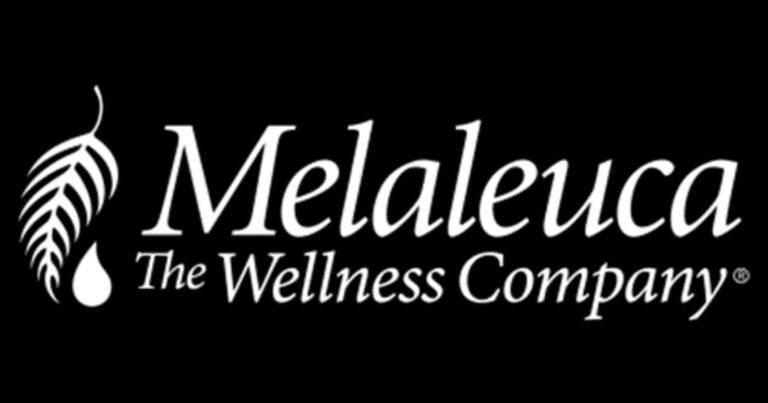Identifying and Avoiding Online Deception
Affiliate Marketing Scams. Affiliate marketing is a method by which a business rewards one or more affiliates for each visitor or customer brought about by the affiliate’s own marketing efforts. While many affiliate programs are legitimate and present a genuine opportunity for marketers to earn income, the industry is also susceptible to scams. These scams typically exploit the affiliate’s effort with no intention to pay the promised commissions, or they might offer products and services of dubious quality.

Millions Now Make Good Money Who Never Thought They Could
Free Starter Program-Start Now
Join over 2.6 million other members and follow the proven Ultra Simple 4 Step Affiliate System used to sell products online every day!
“Navigating the Minefield: Strategies to Sidestep Affiliate Marketing Deception
One common type of affiliate marketing scam is the ‘pyramid scheme.’ In this setup, the main product is actually the membership itself, and revenue comes primarily from recruiting new affiliates rather than selling a product or service. This is unsustainable and often illegal, as the structure guarantees that most participants will lose money. Additionally, some unscrupulous companies engage in ‘cookie stuffing,’ where they illegally place their affiliate tracking cookies on users’ computers without consent, falsely inflating referral counts and usurping commissions from legitimate affiliates.
Another variant of scams in affiliate marketing involves overpromised and underdelivered training programs. Scammers entice individuals with promises of unlocking secrets to becoming wealthy through affiliate marketing, yet these programs often provide superficial or useless information. These schemes typically require an upfront investment and rely on the incoming flow of new affiliates purchasing the training rather than actual sales of products or services through affiliate marketing efforts. It is vital for potential affiliates to thoroughly research and verify the credibility of an affiliate program before committing time and resources to avoid falling victim to scams.
Understanding Affiliate Marketing

In this section, we’ll examine the core principles that define affiliate marketing and outline how to identify legitimate affiliate programs.
Millions Now Make Good Money Who Never Thought They Could
Free Starter Program-Start Now
Join over 2.6 million other members and follow the proven Ultra Simple 4 Step Affiliate System used to sell products online every day!
The Basics of Affiliate Marketing
Affiliate marketing is a performance-based strategy where a business rewards one or more affiliates for each visitor or customer brought about by the affiliate’s own marketing efforts. Typically:
- Affiliates join an affiliate program.
- They promote products or services using a unique affiliate link.
- Affiliates earn a commission based on sales or leads generated from their link.
This digital marketing tactic benefits businesses by driving traffic and sales while allowing affiliate marketers to earn money on a commission basis. Here’s a simplified representation of the process:
- Affiliate marketer signs up for an affiliate program.
- Marketer receives a unique link to track referrals.
- Marketer promotes the link via their channels (blog, social media, email newsletters).
- A consumer clicks the link and makes a purchase.
- Affiliate marketer receives a commission from the sale.
This model is prevalent across various industries due to its cost-effectiveness and scalability.
Millions Now Make Good Money Who Never Thought They Could
Free Starter Program-Start Now
Join over 2.6 million other members and follow the proven Ultra Simple 4 Step Affiliate System used to sell products online every day!
“Authentic Affiliations: Criteria for Evaluating the Legitimacy of Affiliate Programs”
Recognizing Legitimate Affiliate Programs
Identifying legitimate affiliate programs is critical for any affiliate marketer’s success and credibility. Here are key attributes of genuine programs:
- Transparency: Details about the program, including commission rates and payment schedules, should be clear.
- Reputation: Programs from reputable companies with positive reviews are more likely to be credible.
- Support: Legitimate programs often offer training or resources to help affiliates succeed.
- No Unreasonable Fees: Genuine programs seldom require affiliates to pay large fees to join.
Legit affiliate marketing relies on trust and partnership between the affiliate and the merchant. It’s essential for affiliates to research and only engage with programs that uphold these standards to maintain the integrity of the industry.
Millions Now Make Good Money Who Never Thought They Could
Free Starter Program-Start Now
Join over 2.6 million other members and follow the proven Ultra Simple 4 Step Affiliate System used to sell products online every day!
Common Affiliate Marketing Scams

“Scam Savvy: Identifying the Most Prevalent Affiliate Marketing Frauds”
In the realm of affiliate marketing, scammers often exploit the model’s performance-based rewards to execute various deceptive practices for financial gain. It’s crucial for affiliates and merchants to recognize the most pervading scams in order to safeguard their interests.
Millions Now Make Good Money Who Never Thought They Could
Free Starter Program-Start Now
Join over 2.6 million other members and follow the proven Ultra Simple 4 Step Affiliate System used to sell products online every day!
Get-Rich-Quick Schemes
Get-rich-quick schemes in affiliate marketing are often presented through persuasive sales pitches, promising substantial income with minimal effort. They typically employ misleading testimonials to enhance their credibility. However, these programs rarely deliver on their promises and exploit participants’ investment of time and money.
Pyramid and Ponzi Schemes
Pyramid schemes are structured on the notion that individuals can profit primarily by recruiting more participants. These models are unsustainable as they collapse once recruitment ceases. Similarly, Ponzi schemes rely on the capital of new investors to pay returns to earlier ones, rather than legitimate business profits, leading to eventual collapse.
Fake Products and Services
The promotion of nonexistent or vastly misrepresented products and services is a significant scam. Affiliates may unknowingly push these fake offerings, resulting in chargebacks and a tarnished reputation. Consumers receive low-quality or completely different products than advertised, if they receive anything at all.
Unethical Ad Practices
Unethical ad practices in affiliate marketing include ad hijacking and cookie stuffing. Ad hijacking occurs when scammers clone genuine ads to direct traffic to their own affiliate offers, while cookie stuffing involves embedding unauthorized affiliate tracking cookies into users’ browsers, falsely claiming commissions.
| Unethical Practice | Description |
|---|---|
| Ad Hijacking | Copying legitimate ads to steal traffic and commissions |
| Cookie Stuffing | Secretly inserting tracking cookies without user’s consent |
Sophisticated Fraud Techniques
“Beyond the Basics: Recognizing Sophisticated Fraud in Affiliate Programs
Scammers employ advanced tactics like malware, typosquatting, and click spam to generate fake leads and commissions. Malware may redirect users’ clicks or insert affiliate cookies, whereas typosquatting involves registering misspelled variants of popular website URLs to capture accidental traffic. Bot traffic also simulates human activity, creating spoof traffic and false transactions to mimic genuine engagement.
| Fraud Technique | Function |
|---|---|
| Malware | Redirects clicks and injects cookies |
| Typosquatting | Uses domain misspellings to intercept traffic |
| Bot Traffic | Creates fake user activity for fraudulent gains |
Millions Now Make Good Money Who Never Thought They Could
Free Starter Program-Start Now
Join over 2.6 million other members and follow the proven Ultra Simple 4 Step Affiliate System used to sell products online every day!
Identifying and Avoiding Scams

In the pursuit of profitable affiliate marketing, one must be vigilant to differentiate between legitimate opportunities and deceptive practices. This section provides guidance on recognizing scams, conducting due diligence on affiliate programs, and safeguarding against fraudulent schemes.
Red Flags and Warning Signs
Scammers often display common indicators that can alert a potential affiliate to fraudulent activities. It is crucial to look out for these signs:
- High Upfront Costs: Legitimate affiliate programs typically do not require high initial fees. Be wary of any program asking for substantial investments just to join.
- Guaranteed Returns: Promises of guaranteed revenue or conversions are a red flag. Affiliate marketing involves inherent risks and performance-based results.
- Vague Descriptions: If the program offers little or no clear information about how it operates or how money is made, it may not be trustworthy.
- Unverified Testimonials: Testimonials and reviews that cannot be verified or seem overly enthusiastic may be fabricated.
- Pressure Tactics: Programs that pressure affiliates to act quickly are often trying to prevent them from doing thorough research.
Millions Now Make Good Money Who Never Thought They Could
Free Starter Program-Start Now
Join over 2.6 million other members and follow the proven Ultra Simple 4 Step Affiliate System used to sell products online every day!
How to Vet Affiliate Programs
When considering an affiliate program, individuals should:
- Conduct Extensive Research: Investigate the program’s history, read reviews, and explore its online presence.
- Check Affiliate Support:
- Legitimate programs typically offer support and training to their affiliates.
- Fraudulent ones may lack support or provide inadequate guidance.
- Examine the Track Record: Look at the program’s prior success with other affiliates to gauge its legitimacy.
Protecting Yourself from Scams
One can take practical steps to safeguard against affiliate marketing scams:
- Use Trusted Sources: Engage with programs that are well-known or have been verified by reputable entities in the industry.
- Keep Personal Information Secure: Be cautious of sharing sensitive information such as bank details unless the program’s trustworthiness is confirmed.
- Implement Security Measures: Use strong passwords and anti-phishing tools to protect your personal and financial accounts from unauthorized access.
By giving attention to these red flags and taking proactive steps, potential affiliates can better shield themselves from scams and focus on building a legitimate and profitable business.
Millions Now Make Good Money Who Never Thought They Could
Free Starter Program-Start Now
Join over 2.6 million other members and follow the proven Ultra Simple 4 Step Affiliate System used to sell products online every day!
The Impact of Scams on the Industry

Affiliate marketing scams have induced significant financial and reputational damage to the industry, influencing companies, affiliates, and consumers alike.
Economic Consequences
Financial losses due to affiliate marketing scams are a primary concern for industry stakeholders. Scams can redirect legitimate sales, thus affecting the income of true affiliates and companies. For example, ad injection and false advertising lead to unfair competition and a misallocation of marketing funds.
- Cost of Sales: Fraudulent activities may inflate the cost of affiliate marketing by skewing performance metrics.
- Revenue Loss for Brands and Retailers: Scams siphon revenue from rightful earners, reducing overall market efficiency.
Reputational Damage for Brands and Marketers
Scams can tarnish the reputations of involved parties. When customers associate a brand with deceit due to affiliation with scam operations, trust erodes.
- Trust Erosion: Consumers losing trust can lead to a decline in sales and brand loyalty.
- Affiliate Relations: Legitimate affiliates may be reticent to work with brands that have been mixed up in scams.
Legal Implications
Legal action against affiliate marketing scams not only indicates the severity of the situation but also signifies the response of regulators and companies aspiring to clean up their marketing approaches.
- Regulatory Fines: Companies failing to manage or prevent fraudulent activities may face regulatory actions and fines.
- Litigation Costs: Legal proceedings to address or rectify scams can incur significant expenses.
Millions Now Make Good Money Who Never Thought They Could
Free Starter Program-Start Now
Join over 2.6 million other members and follow the proven Ultra Simple 4 Step Affiliate System used to sell products online every day!
Best Practices in Affiliate Marketing

To successfully navigate the complex landscape of affiliate marketing, one must adhere to certain best practices that foster trust, ensure legal compliance, and select the most suitable affiliate programs.
Millions Now Make Good Money Who Never Thought They Could
Free Starter Program-Start Now
Join over 2.6 million other members and follow the proven Ultra Simple 4 Step Affiliate System used to sell products online every day!
Building Trust with Your Audience
It is paramount for affiliate marketers to establish and maintain trust with their audience. They should consistently offer honest, informative content. Including clear disclosure of affiliate relationships is crucial, as transparency regarding any potential bias strengthens credibility. Affiliate marketers should prioritize their audience’s needs and preferences, recommending products and services that are genuinely beneficial.
- Be Transparent: Clearly inform your audience about your affiliate partnerships.
- Provide Value: Share content that is both helpful and relevant to your audience’s interests.
Choosing the Right Affiliate Programs
Affiliates must exercise discernment when choosing affiliate programs. Legitimate affiliate programs are usually associated with reputable companies that offer fair terms and conditions, reliable customer support services, and effective tracking cookies to ensure that affiliates receive credit for the sales they generate. It is wise to examine search engine results for reviews and testimonials about the program’s legitimacy and to protect oneself from any potential loss due to disreputable practices.
- Research Thoroughly: Look for affiliate programs with positive reviews and a solid reputation.
- Read Terms Carefully: Understand all the terms and conditions before agreeing to promote.
Ensuring Legal and Ethical Compliance
Last but not least, legal and ethical compliance is crucial for long-term success. Affiliates should adhere to all relevant laws and regulations to avoid legal action. This includes clear adherence to disclosure guidelines set by regulatory bodies. Use of ethical practices not only protects the affiliate from legal repercussions but also preserves the trust they have built with their audience.
- Follow Regulations: Stay updated on laws and ensure all promotional activities are legal.
- Ethical Marketing: Avoid misleading claims and focus on honest, ethical promotion of products.
Millions Now Make Good Money Who Never Thought They Could
Free Starter Program-Start Now
Join over 2.6 million other members and follow the proven Ultra Simple 4 Step Affiliate System used to sell products online every day!
Tools and Resources for Marketers

Marketers need the right tools to ensure they’re running legitimate campaigns and avoiding scams. Detailed analytics, robust fraud detection, and continuous learning materials are critical for success.
Analytics and Fraud Detection Software
Marketers can leverage a marketing analytics program to track the performance and effectiveness of their campaigns. By using analytics tools, one can analyze data from various channels to optimize their SEO strategy and adjust their efforts in real-time. These tools are enhanced with tracking codes to monitor user behavior accurately across different platforms, including mobile apps.
| Features | Description |
|---|---|
| Traffic Analysis | Understand user flow and the source of website visitors. |
| Conversion Tracking | Measure how effectively marketing efforts are leading to desired actions. |
Fraud detection software plays a crucial role in protection by identifying suspicious activity that could indicate affiliate marketing scams. These systems detect irregularities, such as abnormal traffic patterns or dubious affiliate practices, fulfilling an essential function within digital marketing.
| Functions | Capability |
|---|---|
| Real-time Monitoring | Identify and address fraud as it occurs. |
| Pattern Recognition | Detect anomalies in campaign performance. |
Millions Now Make Good Money Who Never Thought They Could
Free Starter Program-Start Now
Join over 2.6 million other members and follow the proven Ultra Simple 4 Step Affiliate System used to sell products online every day!
Educational Materials for Continuous Learning
Continuous learning is indispensable for staying ahead in the dynamic landscape of digital marketing. Marketers should seek out educational materials that provide new insights and knowledge on emerging trends.
- Webinars and Workshops: Regular training sessions to enhance one’s marketing acumen.
- E-books and Articles: In-depth resources for a deeper understanding of nuanced strategies.
Publishers offer a multitude of resources tailored to different aspects of the industry, from crafting effective SEO strategies to understanding the mobile marketing ecosystem. They serve as preventative measures by educating marketers on how to recognize and evade fraudulent schemes.
Millions Now Make Good Money Who Never Thought They Could
Free Starter Program-Start Now
Join over 2.6 million other members and follow the proven Ultra Simple 4 Step Affiliate System used to sell products online every day!
Innovations and Trends in Affiliate Marketing

The landscape of affiliate marketing is evolving with the advent of new technologies and changing consumer behaviors. These developments are reshaping how the industry operates, creating fresh opportunities and challenges for online businesses.
Emerging Technologies and Platforms
Affiliate marketing is leveraging new technologies to enhance efficiency and effectiveness. Artificial intelligence (AI) and machine learning are being employed to optimize search results and personalize advertisements, leading to a more targeted approach in marketing campaigns. Platforms like YouTube and other social media channels have begun rolling out integrated e-commerce features, allowing influencers to link products directly within videos and posts. New affiliate platforms emerge, offering advanced tracking and analytics capabilities. For example, automation tools help to manage affiliate links, and predictive analytics can forecast potential earnings more accurately.
Notable Innovations Include:
- AI-powered optimization for affiliate links in search engines.
- Influencer-led product showcases with direct purchasing options on social media.
- Advanced tracking systems that give real-time insights into campaign performance.
Changing Consumer Behaviors
Consumer trends directly influence affiliate marketing strategies. As more people turn to online shopping, there’s a significant shift towards trust in peer recommendations over traditional advertising. As a result, there’s a surge in demand for authentic content from trusted online personalities on platforms like YouTube and social media platforms. Savvy consumers also prefer to do their research, often starting their buying journey with search queries, which places importance on high search engine rankings for affiliate content. Digital marketing strategies are adapting by focusing on creating valuable content that meets the consumers’ search intent.
Key Trends:
- Increased reliance on reviews and recommendations from trusted influencers.
- Content marketing that answers consumer questions and improves search engine visibility.
- Social proof and user-generated content as significant factors in purchase decisions.
Conclusion

Affiliate marketing, a pivotal strategy in modern e-commerce, hinges on trust between advertisers, affiliates, and consumers. However, the prevalence of scams undermines this trust. They often masquerade as legitimate opportunities, making vigilance essential.
Key indicators of affiliate marketing scams include:
- Unrealistic promises of high earnings with little effort
- Requests for payment before joining
- Lack of transparency about the products or services offered
Affiliate marketing necessitates due diligence from all parties involved.
| Avoidance Measures | Description |
|---|---|
| Thorough Research | Investigate the affiliate program’s credibility. |
| Reviews & Testimonials | Seek out feedback from other affiliates. |
| Product Authenticity | Confirm the quality and legitimacy of the offer. |
| Program Terms | Scrutinize the terms and conditions carefully. |
By staying informed and heeding these measures, the integrity of affiliate marketing can be preserved, and profitable, ethical partnerships can thrive.
Further Reading and Resources

To expand one’s understanding of affiliate marketing scams, individuals may consider several types of resources, ranging from research papers to practical guides available online.
Books:
- From Zero to Hero: How to Spot Affiliate Marketing Scams offers a comprehensive guide for beginners.
- The Dark Side of Affiliate Marketing provides insight into unethical practices in the industry.
Research Articles:
- The Journal of Consumer Protection features articles on the latest affiliate fraud cases.
- The International Marketing Review often includes studies on affiliate marketing trends and risks.
Online Resources:
- The Federal Trade Commission (FTC) website contains alerts and guidelines about avoiding scams.
- Affiliate Marketing Watchdog is a blog that regularly updates readers on new types of scams.
Relevant Articles:
- “The Evolution of Affiliate Scams” in Marketing Today sheds light on how scams have changed over time.
- “Protecting Yourself from Online Affiliate Scams” on Financial Security Digest is a must-read for anyone active in online marketing.
These resources have been curated to provide readers with a well-rounded understanding of affiliate marketing scams. They are suitable for both novices and experienced marketers looking to stay informed about potential pitfalls in the affiliate marketing field.

Wealthy Affiliate
This is where I learned how to get started in online business and it is the only community that I trust for honest top-level training on how to make money online. I highly recommend Wealthy Affiliate for its training, tools, live support, and included hosting.
Get a Free Starter Account Now Read About Why Wealthy Affiliate






